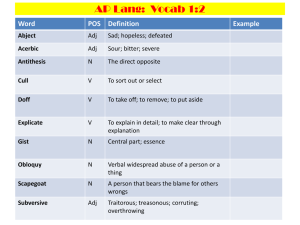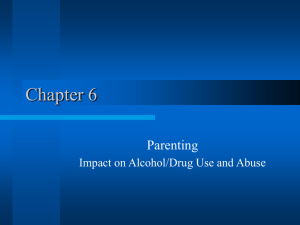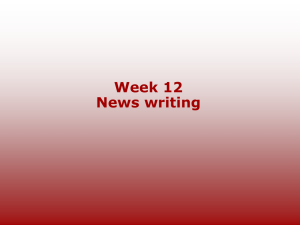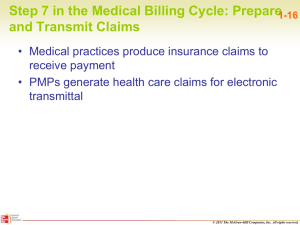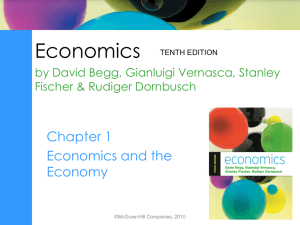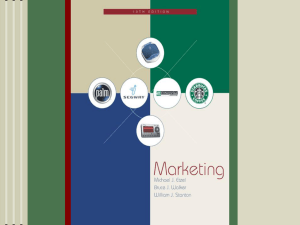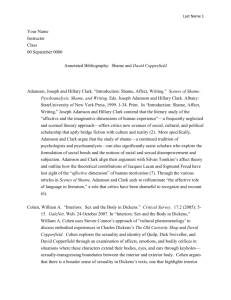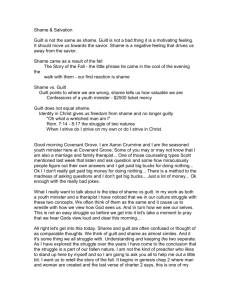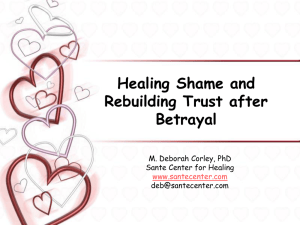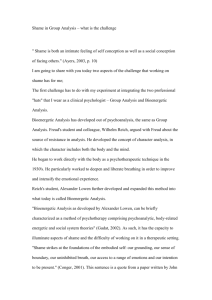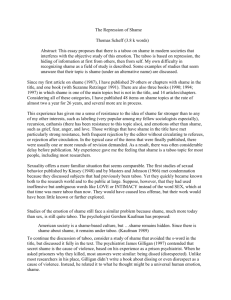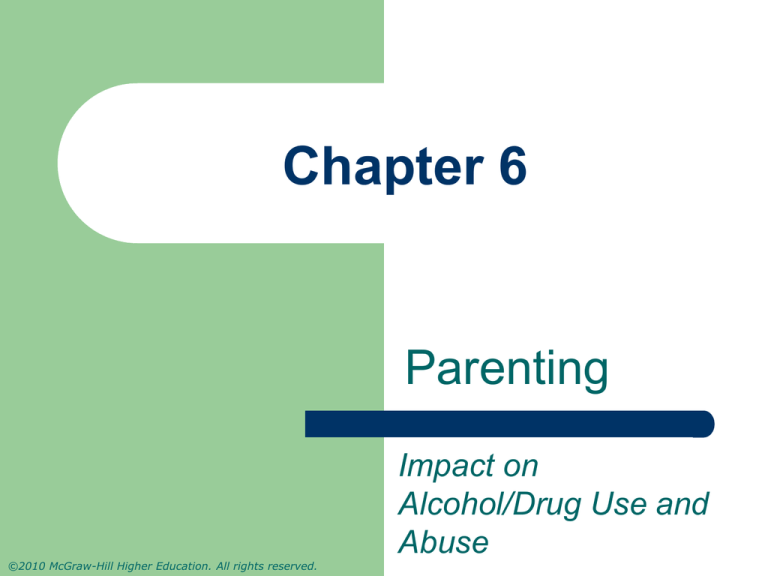
Chapter 6
Parenting
©2010 McGraw-Hill Higher Education. All rights reserved.
Impact on
Alcohol/Drug Use and
Abuse
Parent-Child Bonding
Primary relationship that greatly influences
behavior
Poor bonding impacts:
–
–
–
–
–
Development
Self-concept
Social and interpersonal relationships
Achievement
Identity
©2010 McGraw-Hill Higher Education. All rights reserved.
Hypothesis regarding adolescent
abuse
Overinvolvement
Functional
©2010 McGraw-Hill Higher Education. All rights reserved.
hypothesis
hypothesis
Overinvolvement Hypothesis
The overinvolvement hypothesis is that one
parent (frequently the mother) is overly
involved in the adolescent’s life to compensate
for the lack of availability by the other parent.
©2010 McGraw-Hill Higher Education. All rights reserved.
Functional Hypothesis
The functional hypothesis is that the
adolescent’s substance abuse distracts the
family from focusing on other familial problems,
such as marital discord, infidelity, and parental
abuse of alcohol/drugs.
©2010 McGraw-Hill Higher Education. All rights reserved.
Abandonment Depression
An affective disorder with six key elements:
1. Rage [Homicidal]
2. Suicidal depression
3. Panic
4. Feeling of hopelessness and helplessness
5. Emptiness and void
6. Guilt
(Source: Masterson, James. “Psychotherapy of the Borderline Adult –
A Developmental Approach”, 1976)
©2010 McGraw-Hill Higher Education. All rights reserved.
Characteristics of Shameful
Experiences
1.
2.
3.
4.
5.
Unexpected exposure; being judged on a
vulnerable aspect of oneself
Feeling as if there is a loss of choice
Feeling out of place, flawed, defective, or
inadequate
A threat to the core of one’s identity
Mistrust in ability to perceive things properly;
unsure of self in making decisions or relating to
people
©2010 McGraw-Hill Higher Education. All rights reserved.
Characteristics (continued)
6.
7.
8.
Trust of self and others is jeopardized; boundaries
are distorted; and physical, emotional, and/or
sexual violations may occur
Difficulty in assessing what is reality
Feeling helpless, powerless, and trapped, with no
way out (Fossum and Mason 1986)
©2010 McGraw-Hill Higher Education. All rights reserved.
SHAME
Definition: Self looking in on self, finding the self
lacking. Feeling exposed “see” in some public way and
wanting to cover – feeling hunted.
Shame Based System
1. No Hope
2. Inescapable
3. Exterior based
Feedback Based System
1. Hope – choice
2. Can make amends
3. Will feel better later
(Source: Facing Shame: Families in Recovery, Fossum and Mason)
©2010 McGraw-Hill Higher Education. All rights reserved.
Affect / Shame Binds
anger + shame = rage
anxiety + shame = panic
fear + shame = terror
sadness + shame = depression
depression + shame = despair
despair + shame = suicidal thoughts
suicidal thoughts + shame = suicide attempt
©2010 McGraw-Hill Higher Education. All rights reserved.
Affect / Shame Binds cont’d
hurt + shame = pain
pain + shame = trauma (deep or chronic pain)
trauma + shame = phobia
phobia + shame = loss of reality
unavailability + shame = lack of trust of others
lack of trust of others + shame = paranoia
paranoia + shame = loss of reality
©2010 McGraw-Hill Higher Education. All rights reserved.
Obstacles to Reaching Parents &
Family
Denial
Skepticism – Incongruence
Assumption that things will be
OK
Distorted, depressed view of
life
Fear of being labeled
Fear of loss of confidentiality
Narcissism of parents
Lack of energy/time of
parents
©2010 McGraw-Hill Higher Education. All rights reserved.
Lack of credible messages –
cultural/racial
Lack of concern/respect for
experts
Lack of awareness of
community resources
Need for services for basic
survival
Cultural mores
Distrust of the system
Other Obstacles to Reaching
Parents & Family
Rejection Sensitivity
–
Procrastination, rumination – motivation & change
Despair
–
Can’t avoid failure/rejection – it is “how long” does it take to
recover from defeat
“Universal and permanent causes for misfortune”
Lack of hope – depression
Shame versus pride
Recognition that alcoholism and drug addiction are
family diseases
©2010 McGraw-Hill Higher Education. All rights reserved.
A Balanced or Healthy Family
System (Fossum & Mason) Includes
Hope
Choice
Ability
to make amends
©2010 McGraw-Hill Higher Education. All rights reserved.
Characteristics of Parental
Imbalance (Kempher)
Increased
alcohol, drug and/or
nicotine dependence
Increased marital conflict
Increased parental absenteeism
©2010 McGraw-Hill Higher Education. All rights reserved.
Compassion
Definition: recognizing and being sensitive to others
suffering as well as one’s own suffering
Can counteract shame
A noble ascription (the common good not just about me)
is: We are all in this together.
The most resistant people in families to get to counseling
are……fathers.
©2010 McGraw-Hill Higher Education. All rights reserved.

